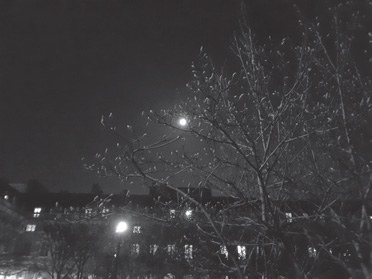

LAST NIGHT, after another attack in Paris, I dreamed the dream called France. Mother was in the post office exchanging money, and signed all her traveler’s checks in the wrong place. What pretty handwriting, I thought, as she exclaimed, “Sainte Vierge!,” using an expression I had not heard since childhood. The postal clerk looked over her glasses and replied glibly, “Madam, in this matter the Blessed Virgin cannot assist you.”
Then Mother and I were discussing Uncle Marius’s name, which came from Gaius Marius, born in 157 BC, the son of a laborer who was elected Roman consul five times. He was the first citizen to break into the exclusive governing class of aristocracy. His wife was Julia, sister of Julius Caesar. He was beloved for having delivered Provence from the barbarians in a great battle at Aquae Sextiae, modern-day Aix-en-Provence. He was a brave soldier and skilled with his troops. The carnage from this battle was so great that, when heavy rain fell the following winter, the earth soaked up the putrefying bodies and bore a prodigious crop. When I was a young man visiting Uncle Marius, we would sit at his dining-room table drinking milky white pastis. He raised pale blue and yellow canaries and would let them out of their cages to fly around our heads. He was unemployed and fixed radios, which he sold at the marché every weekend. I loved him.

Then Mother and I were at the Paris Opera House, craning our necks to admire the ceiling mural painted by Marc Chagall. “This noble France, this poet of the Nations,” Mother said, looking up, quoting Elizabeth Barrett Browning. Nothing one has seen before prepares one for Chagall’s unmistakable rainbow of colors (“Color, not technique, conveys a painter’s character and message,” he insisted). I don’t remember what I saw in that ceiling of unidentifiable figures and creatures—roosters, goats, fish, donkeys—sometimes with human bodies, but they seemed to float somewhere between heaven and earth. Sometimes chased by flowers. Sometimes like angels hovering, with sweeping white flame-like wings. Is it possible that Chagall was not really a surrealist but a supernaturalist?

Then Mother and I were at a restaurant overlooking the dark violet Seine. There were barges knocking against each other in the current. Overhead, the gnarled limbs of plane trees cast shadows on us. It was Mother’s birthday, so we ordered kir royals, which I splashed a little on the immaculate white table linens. In honor of Marseille, Mother’s birthplace, I ordered bouillabaisse, which arrived in two dishes, a bowl of murky bouillon and a side plate heaped with filleted scorpion fish, dories, monkfish, eel, capon, and spider crabs. I smeared a garlic paste on little toasts and plopped them in the bouillon with chunks of the fish, whose skeletons lay on a white platter and seemed to lift their heads to admire the purple night, as we did.
“The French are great optimists: they seize upon every good that flies, and revel in passing pleasures,” Washington Irving wrote, and this is how it seemed in my dream, where life was gentler than back home. Mother and I meandered along the river, which shimmered beside us and splashed against its banks. The moon shimmered, too, like a big gold coin, and for a moment the grinding of gears on the motorway and the bustling city above seemed to halt. As we watched the light mirrored in the river, the city seemed to be as old as time itself.
“Every man has two mother countries: his own, and then France.” I think Benjamin Franklin said this, and this was the feeling of my dream, in which sweet, sweet cherries were being delivered at the market, along with the delicious Cavaillon melons, which are smaller but tastier, like a poem compared to a novel. Suddenly it was time to say goodbye, and Mother was carrying the worn suitcase her own mother brought from the old country, Asia Minor, in which there was a dress made of rough fabric, almost as rough as burlap, with five gold buttons sewn into the hem to help with the new life she would make in Marseille.
But I do not want to say goodbye. Come back, I cry, though I know she cannot. “Remember to put more commas and semicolons in your life,” Mother says. And I tell her I will. “Remember to reveal the soul’s capacity for compassion, sacrifice, and endurance,” she says, and I promise to strive to do this. Then she disappears, like smoke from a train, or oblong rain clouds. Some dogs joined me in my walk along the Seine. I could see from the markings on their coats and in how they held their tails and moved their ears that they were all related to one another, as we are. Sniffing one another, gamboling, and licking each other’s coats, they seemed to be teaching me something.
